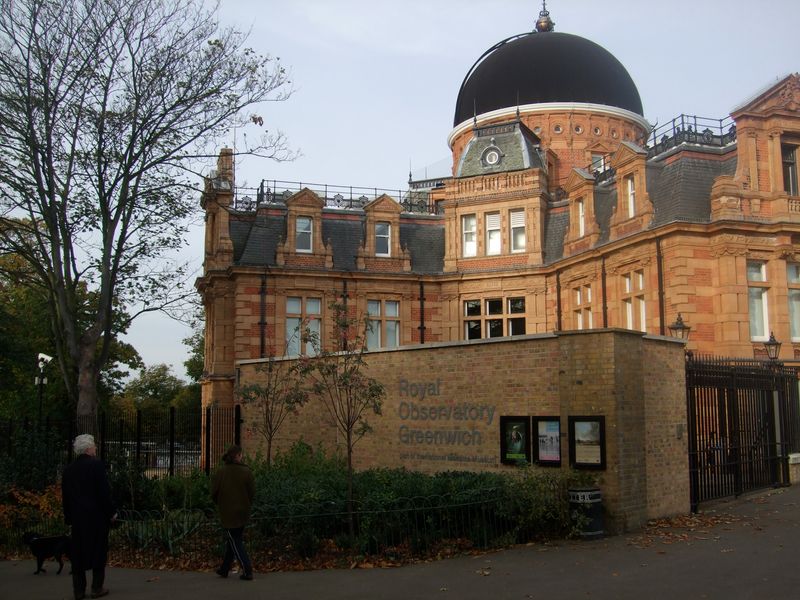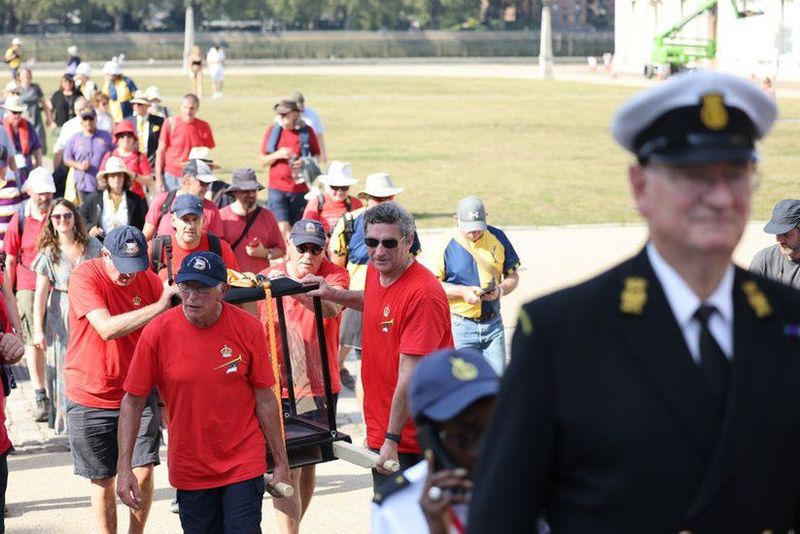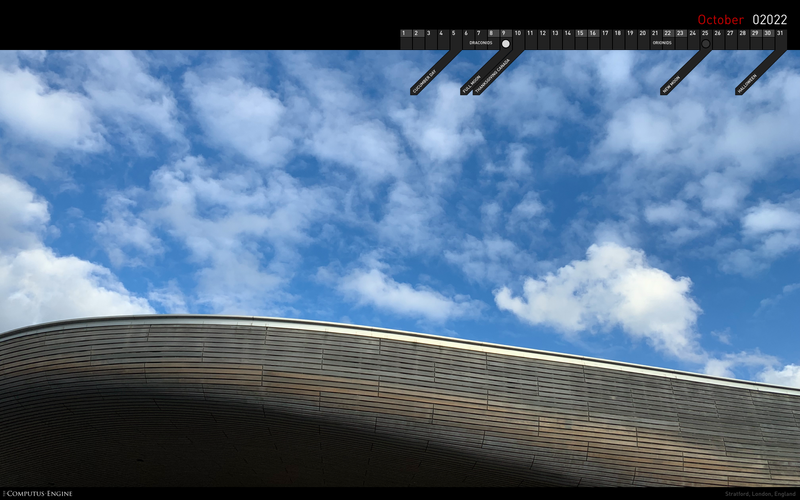Where did summer go? October just seems to have flown by and suddenly we're back into long nights and cold weather. If you're in the southern hemisphere I'm sure you're already breaking out the bbqs! I can't quite believe everything that has happened this month. It's been a busy month so I thought I'd write some of it up here.
The Computus Engine
Most importantly I've finally had some quiet time in between projects and have begun porting my AS2 Timeline code over to AS3. This library will be the backbone of all the future visualisation work. At the moment I have a working resizable static timeline that can show any period type from seconds up to millennia. It's not really ready for primetime yet so I'm going to carry on tweaking it until it's in good enough shape to demo.
The Open Knowledge Foundation
I've mentioned before that I'm primarily interested in developing temporal interfaces. My general feeling about data is to support as many sources and schemas as possible. That way I can hook easily into many other projects. Last month I had a very nice email from Jonathan Gray of the Open Knowledge Foundation. They have an interesting project called Microfacts Weaving History which aims to create narratives by combining temporal facts into timelines. It sounds like we're approaching the same problem from different angles. Hopefully we will be able to help each other.
Flash on the beach 2008
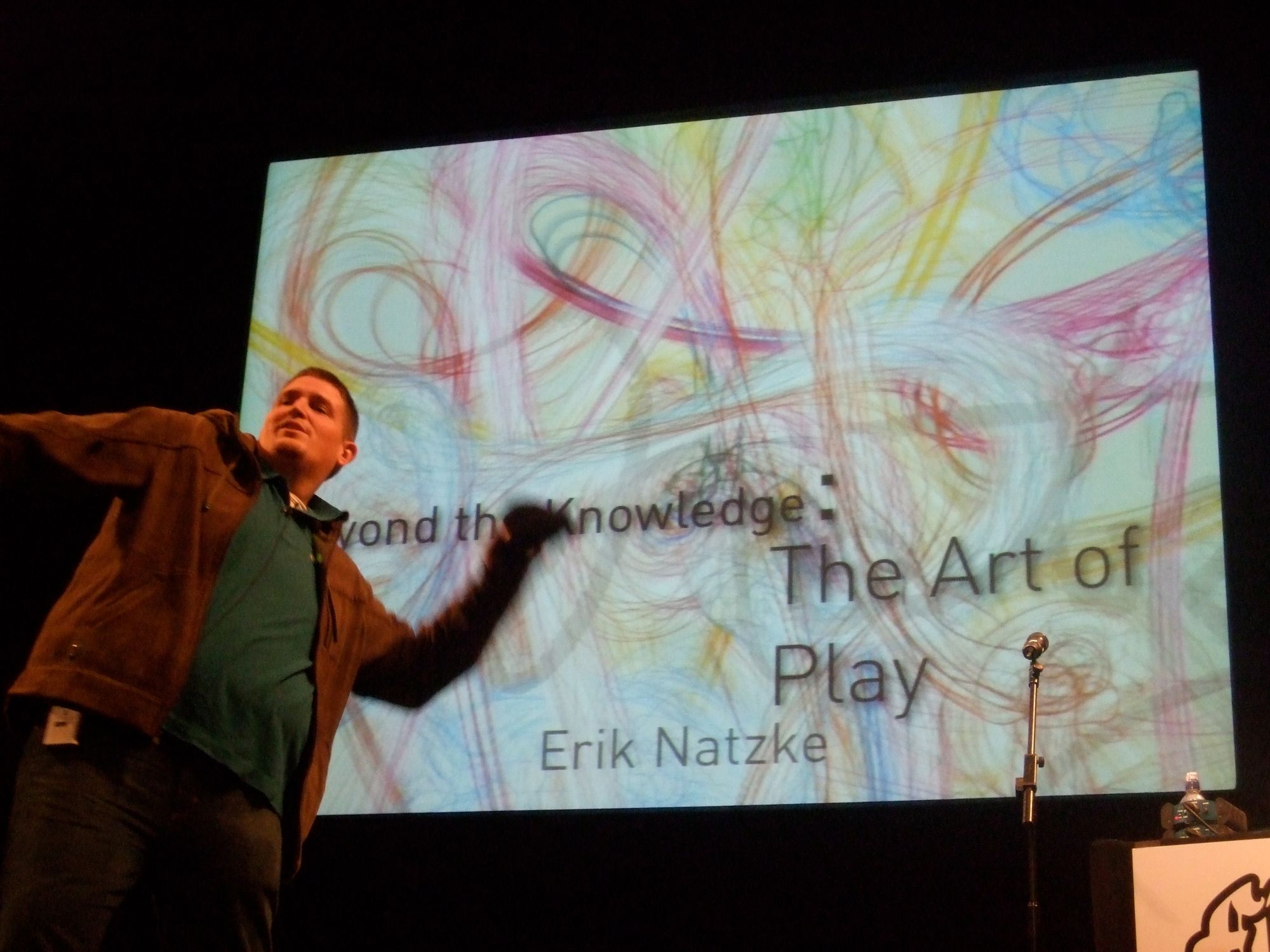
The month got started with Flash on the beach, the big annual UK Flash conference, which is held just along the coast from me in Brighton. We cover the con every year for FlashMagazine and this one was as good as ever. I won't cover the same stuff here but if you're interested you can read our coverage here.
If you follow any Flash blogs then you'll no doubt be aware that this year was controversial for a couple of reasons. The first involved a news story we posted regarding a Flash player that Adobe are developing for the iPhone. Although this was later played down by Adobe it was certainly news to us, and looking at how quickly the story was picked up by rest of the blogosphere it was news to everyone else as well. The story continues to run weeks after we broke it and was even picked up by The Guardian just the other day. Anyway, I won't get any further into that one today.
I would though, like to consider the other big con-troversy (sorry); namely the closing remarks of Jonathan Harris. For those unfamiliar, Jonathan followed up a retrospective of his work with a series of slides and a crie de cour to concentrate on work that matters. His comments stayed with me and I find that interesting. Any speaker who makes you think or reconsider is worth listening to, especially if the advice isn't palatable. Rather than offer up a knee jerk reaction I wanted to stew on it for a bit to decide how I really feel.
I'd recommend viewing the slide deck, reading Johanathan's transcript (and subsequent reaction) and then listening to a recording of the session before making up your own mind. I wrote a whole article about this then binned it as I'm probably over-analyzing it. In the end I agree with most of his points but I think an over-zealous delivery alienated his audience.
The <HEAD> Conference 2008
The last weekend of the month was something of a blur. On the Friday night I was lucky enough to be invited to the London hub of the inaugural <HEAD> conference. Jeremy Keith opened the day with a talk entitled The Long Web in which he appealed for some long term thinking (a subject close to my heart) about preserving digital archives.
The final guest of the day was Tim O'Reilly, founder of O'Reilly media and the man generally credited with coining the phrase web 2.0. This session took the form of a chat on the couch.
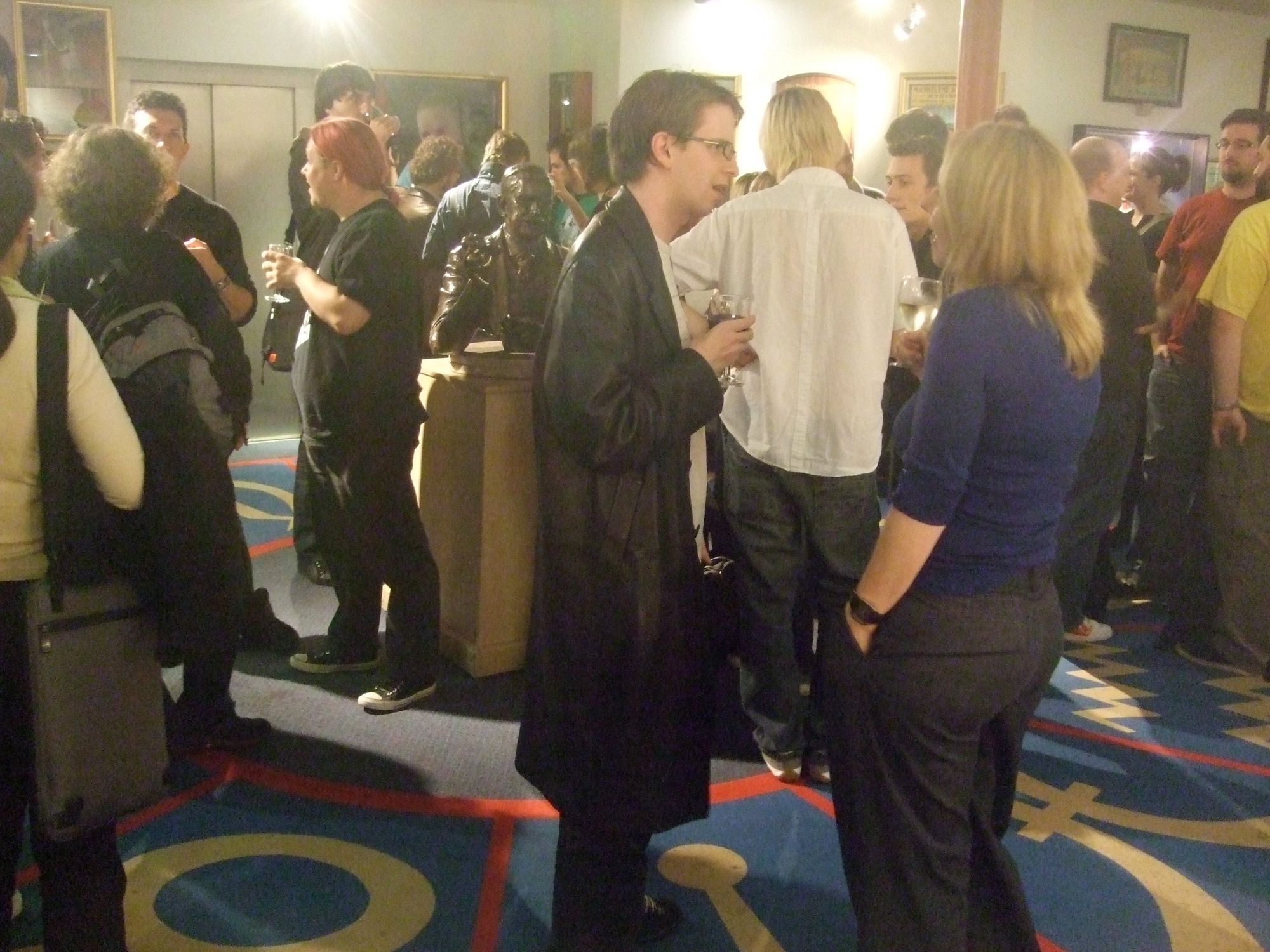
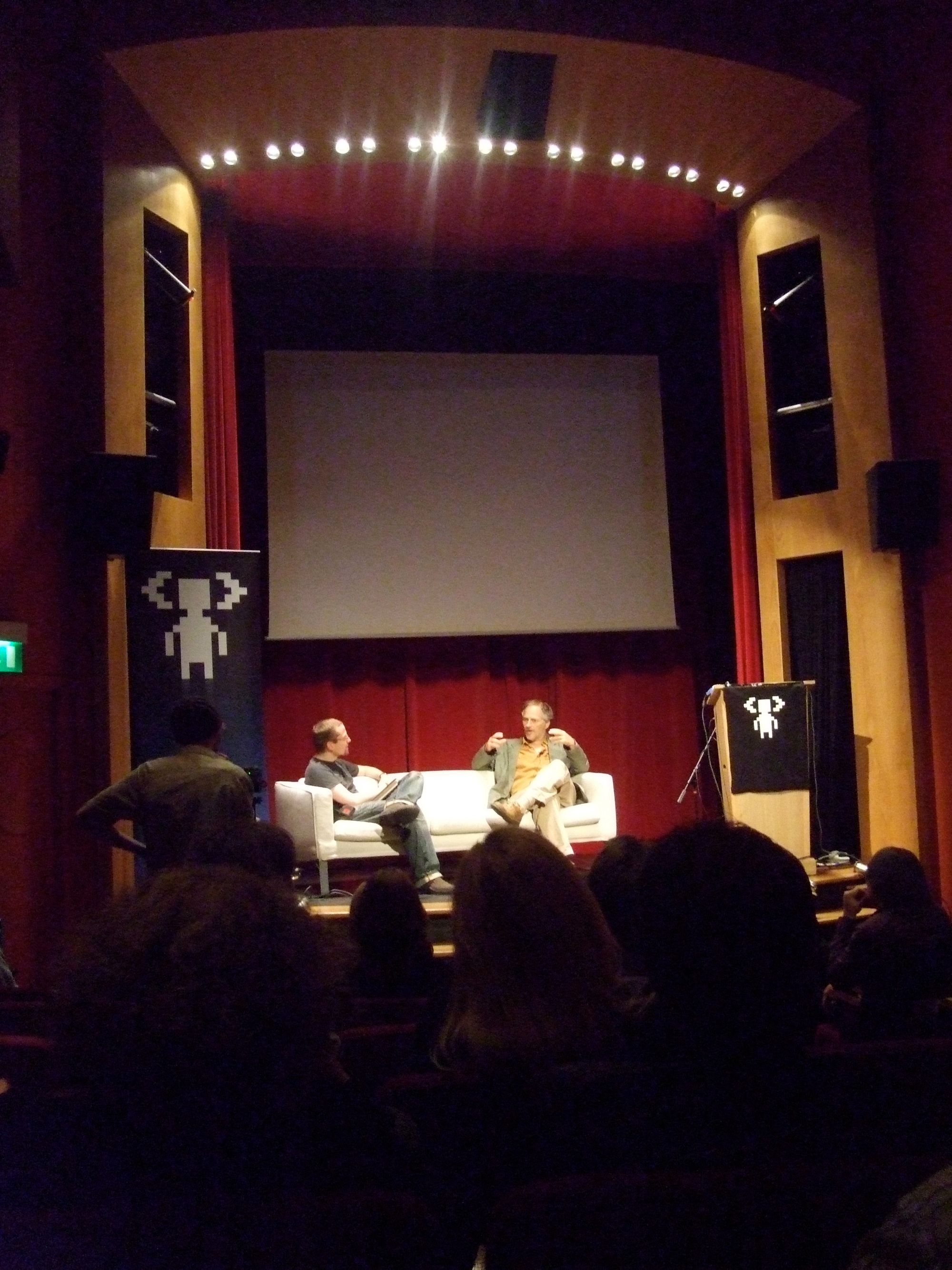
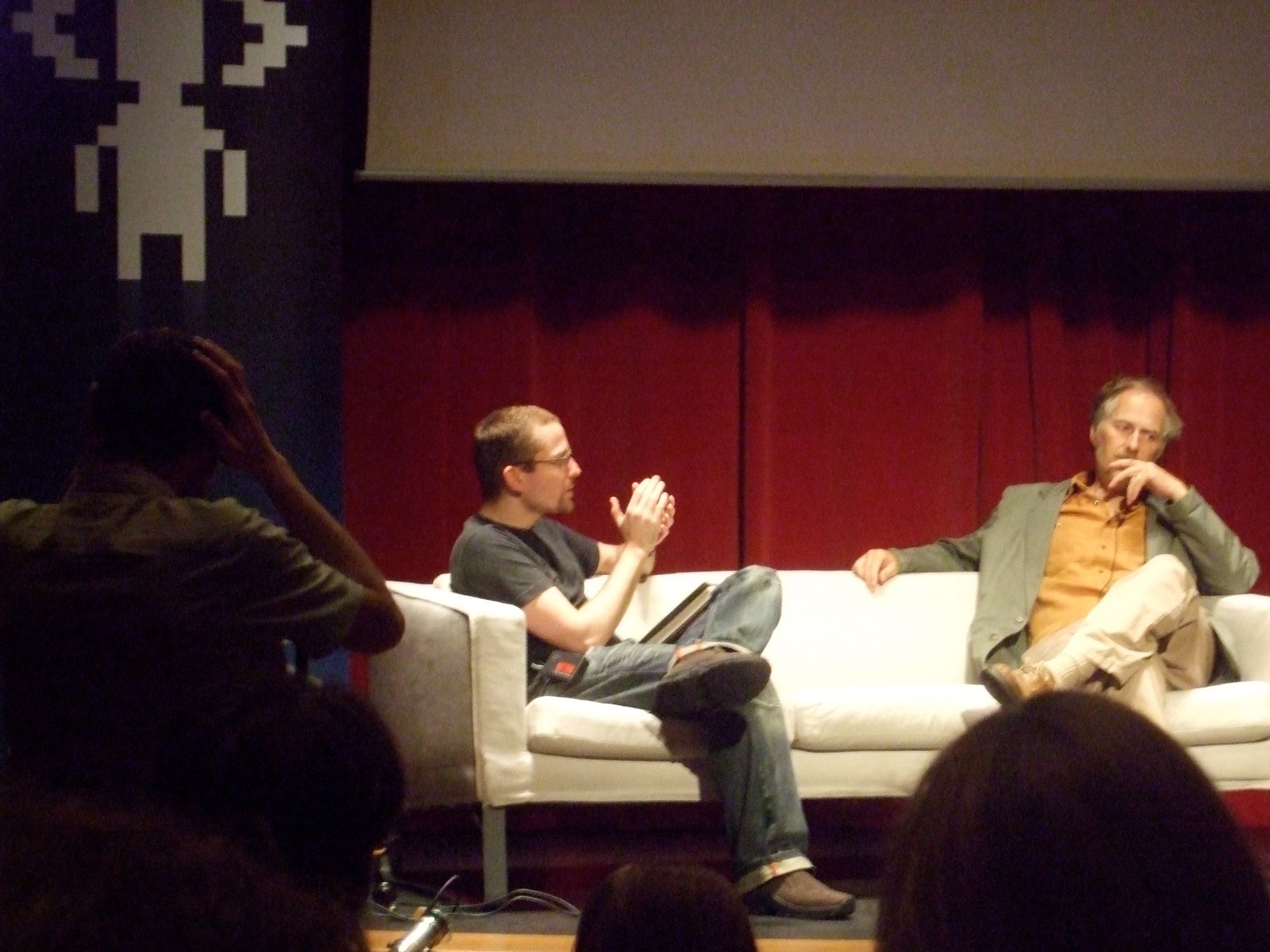
I think this really typified the appeal of the whole con. It was loose, friendly and dare-I-say-it "home made". I mean that in a good way. A lot of hard work and enthusiasm went into pulling it off and Aral and the team are to be congratulated for what they've achieved.
The 2nd Annual Greenwich Time Symposium
The day after <HEAD> I was off to Greenwich for a very interesting day at the 2nd annual Greenwich Time Symposium. About 50 people gathered at the National Maritime Museum to learn and discuss the history of Daylight Saving Time.
David Rooney, the RGOs Curator of Timekeeping, began by relating the story of London builder William Willett and his campaign to change our nations clocks to make better use of summer daylight. David has just finished researching a book on Willett and we were joined in the audience by two generations of the Willett family.
Our next speaker was David Prerau, author and DST consultant to the U.S Congress. David's talk was an authoritative and often hilarious history of DST in America. A lot of material was culled from his recent book Saving the Daylight (or Seizing the Daylight in the U.S.), and is well worth picking up.
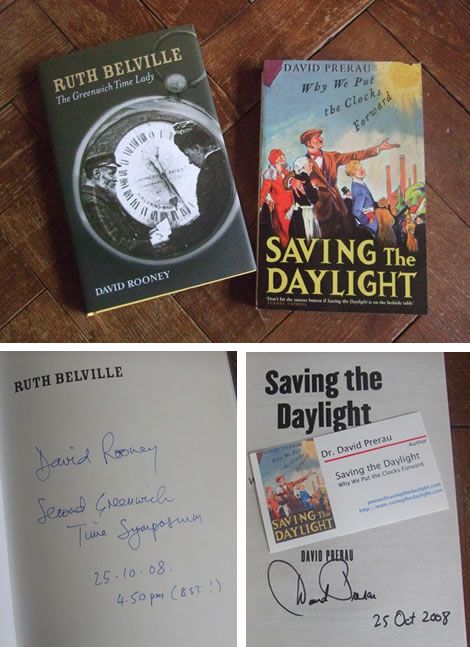
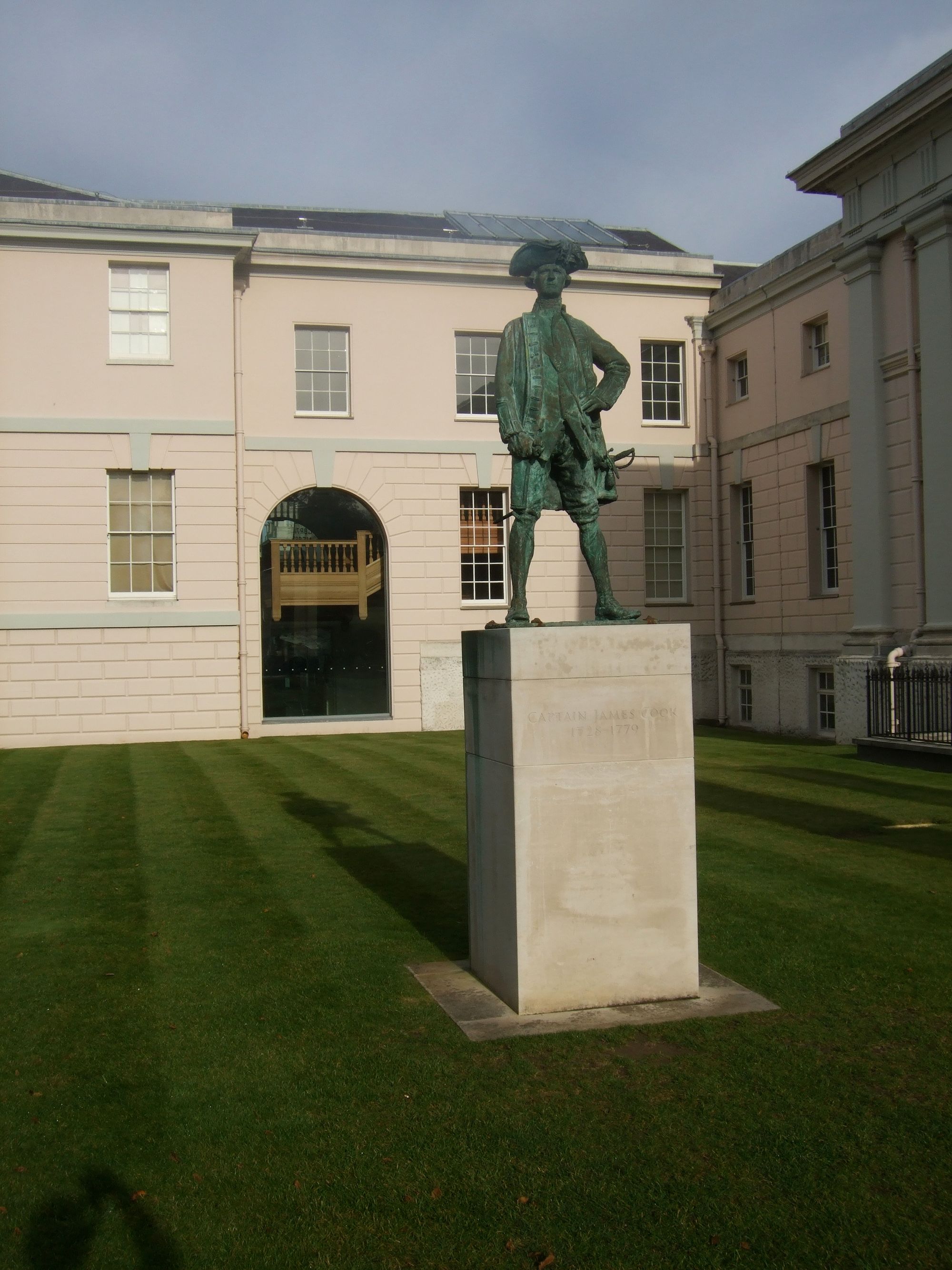
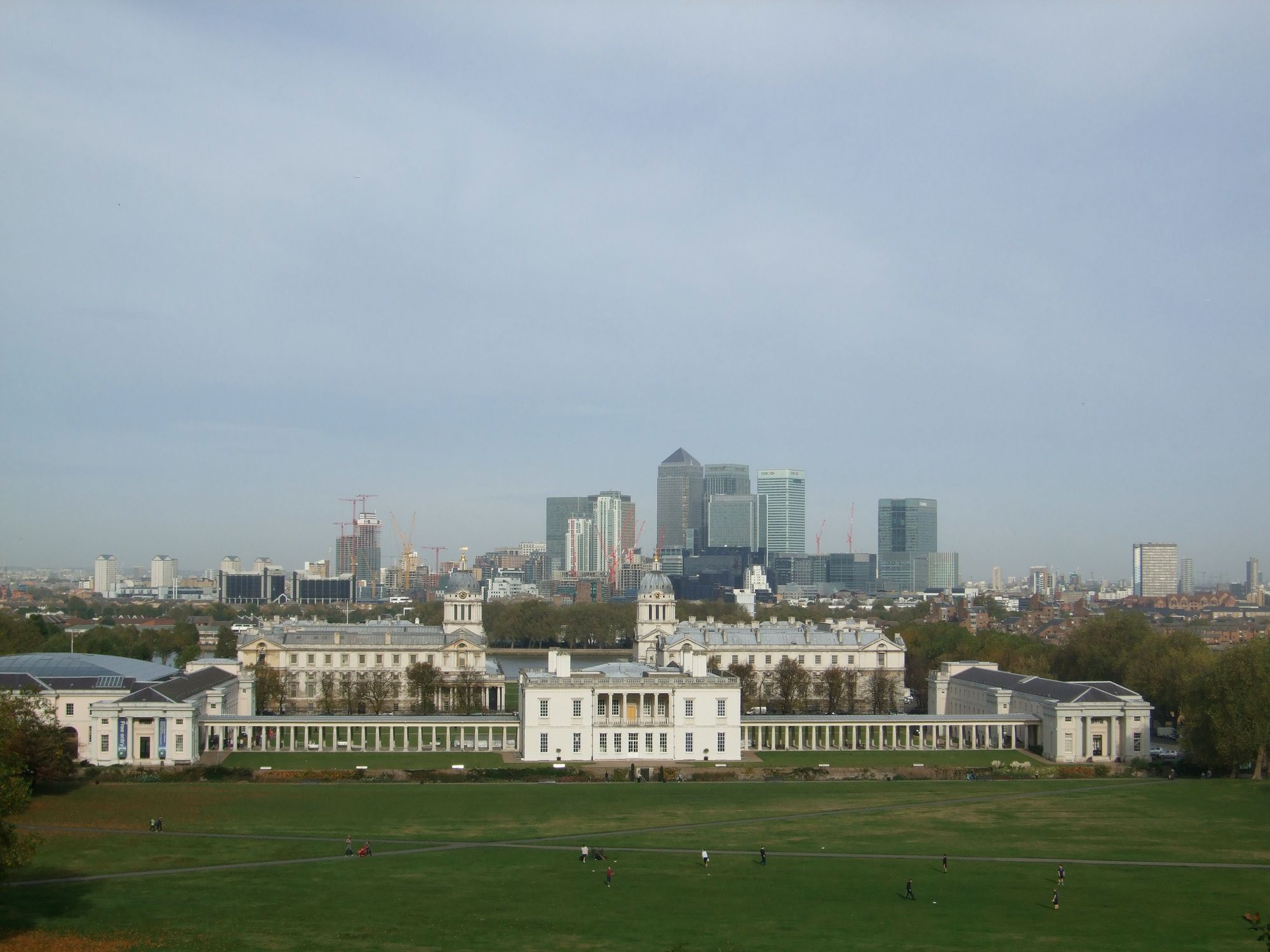
After lunch Andrew Saint, Professor of Architecture at Cambridge gave us a tour of buildings built by the Willett family in London and Hove. The final speaker of the day was James Nye of the Institute of Historical Research. His session revolved around a fictional account of a dinner between Willett and two time company lobbyists.
Before I attended the symposium I was completely against DST. This was mainly due to the headaches it causes me as programmer. By the end however I had relaxed my position. I can now see the social value of DST, particularly it's measurably beneficial effects on road safety and crime. That said, it's unregulated adhoc application is still a minefield.

